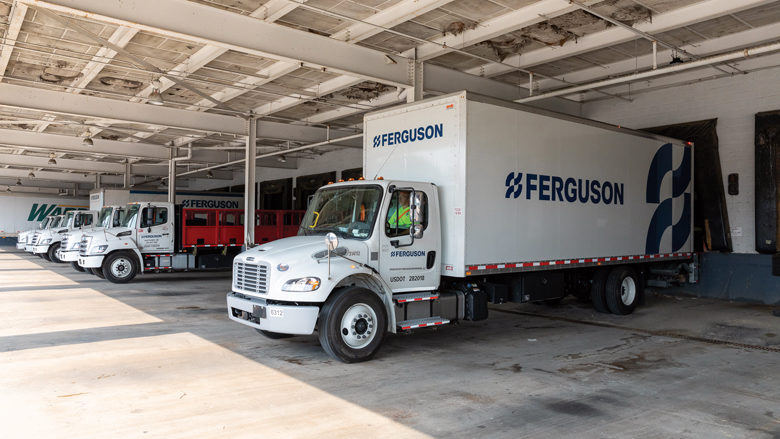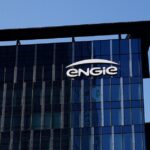Ferguson and Ford to Explore Alternative Fuel Sources for More Sustainable Transportation Future in Commercial Fleets

Data Used to Support Solutions for Ongoing Industry Challenges, Such as Battery Range and Payload Capacity, to Enable Faster Conversion to Environmentally Friendly Options
Ferguson Enterprises, LLC announced a collaboration with Ford Motor Company to place a first-of-its-kind F550 Fuel Cell Prototype Chassis Work Truck in service within Ferguson’s daily fleet operations for six months. Participation in Ford’s F550 Fuel Cell Prototype Work Truck, a DOE SuperTruck 3 Initiative, complements Ferguson’s overall sustainability strategy to reduce a sizable proportion of Scope 1 emissions from its fleet.
This pilot program aims to evaluate how fuel cell technology will operate within the Ferguson fleet while providing real-world usage data to Ford. Ferguson will provide Ford with vehicle data and feedback about the technology to help Ford better define the engineering requirements for commercial vehicle duty cycles. This data will be used to address ongoing industry challenges within the medium-duty and heavy-duty segments, like battery range and payload capacity, that have prevented faster conversion to environmentally friendlier options. As part of this collaboration, Ferguson will also prepare a location in Charlotte, NC for the installation of temporary infrastructure equipment for the duration of the pilot.
“We are taking a proactive approach to meeting the challenge for a more sustainable future, recognizing the critical role fuel-efficient trucks play to keep American businesses running,” said Kevin Murphy, Ferguson CEO. “We are pleased to announce this innovative collaboration with Ford to help improve alternative fuel options in their medium-duty fleet, in line with our overall corporate sustainability strategy to reduce our Scope 1 and 2 emissions.”
See related article: Ferguson Releases ESG Report
This pilot program with Ford complements Ferguson’s previously announced pilot program to launch 30 class 6 through 8 all-electric delivery trucks in its fleet in collaboration with Holman and Electrada. The turnkey fleet management and electrification solutions enable Ferguson to deploy medium- and heavy-duty all-electric vehicles throughout California while streamlining the development of the necessary charging and energy management infrastructure. Together, these investments in new technologies will help inform Ferguson’s strategy for a more environmentally friendly fleet.
“As we reviewed emissions from our fleet, we realized our scale in the industry provided us with an opportunity to invest in and test new technologies. Participation in Ford’s F550 Fuel Cell Prototype Work Truck pilot program will provide further learnings as we work to convert Ferguson’s fleet more efficiently,” said Denise Vaughn, Ferguson Vice President – Environmental, Social and Governance. “Ultimately Ferguson’s investment in new technologies will set the industry standard for private fleet conversion, driving an expansion of the country’s refueling infrastructure.”
See related article: Ford Record Deal to Make 100% of Vehicles in Michigan Electric
“Ford’s strategy to reduce carbon emissions across the globe includes investigating multiple technologies that will help us achieve these goals across a broad spectrum of applications,” said Jim Buczkowski, executive director, Ford Research and Advanced Engineering. “This collaboration with Ferguson is a strong example of where our Ford Pro business and the potential of fuel cell propulsion systems might address the application gaps that battery electric vehicles just can’t fulfill. The potential of hydrogen, the most plentiful element on the planet, coupled with fuel cell technology has tremendous potential to power larger, heavier commercial vehicles while still delivering zero tailpipe emissions.”
“While the industry continues to evolve and has made great strides, there remain critical challenges that require urgent consideration to facilitate real progress,” said Thurman Register III, Ferguson’s Senior Fleet Manager. “Fleets cannot delay deployment of cleaner fuel technology based on their current vehicle retention and replacement strategies. Future industry success is driven by companies like Ferguson investing and collaborating with OEM partners to build solutions that improve the environment without disrupting business. Our collective work addresses multiple industry issues and drives the commercial fleet industry quickly towards a more sustainable future.”
Source: Ferguson












